What Causes Primary Hyperoxaluria (PH)?
PH is a family of rare, genetic disorders that affect the body’s ability to regulate the production of oxalate which can result in kidney damage. The liver normally makes proteins, called enzymes, that prevent the body from making too much oxalate. In PH, the liver doesn’t create enough of this enzyme, or the enzyme doesn’t work properly. To date, experts have identified three different genetic causes of PH.
PH1
AGXT
genetic mutation
AGXT
enzyme deficiency
PH2
GRHPR
genetic mutation
GR/HPR
enzyme deficiency
PH3
HOGA1
genetic mutation
HOGA1
enzyme deficiency
Symptoms
It is important to note that some people with primary hyperoxaluria may not show any symptoms until later in life, while others may experience severe symptoms at a young age. Renal failure can occur as early as infancy while others with PH never develop kidney failure. Although kidney stones, especially kidney stones in childhood, are the most common and often the first symptom of hyperoxaluria, not all individuals with hyperoxaluria will have kidney stones.
The signs and symptoms of primary hyperoxaluria can vary depending on the type of the disorder and the severity of the disease, but if you or a loved one experiences the below signs and symptoms you should further investigate to understand the cause, because it could be hyperoxaluria:

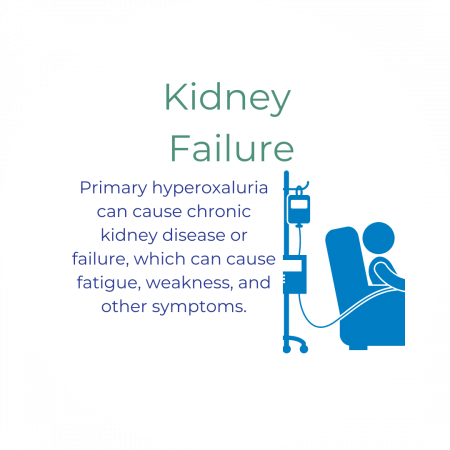
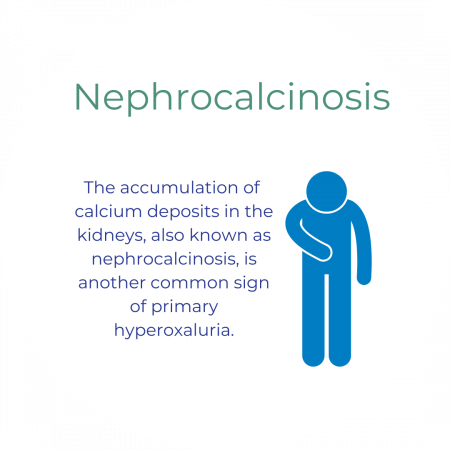
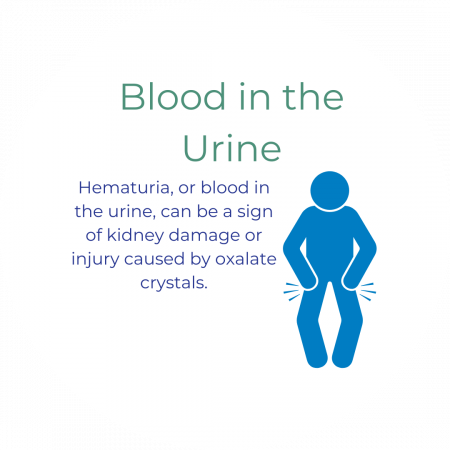
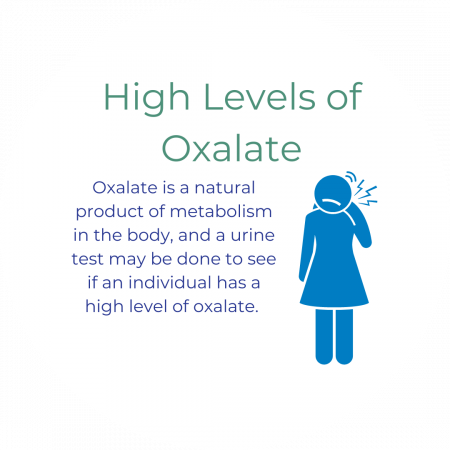
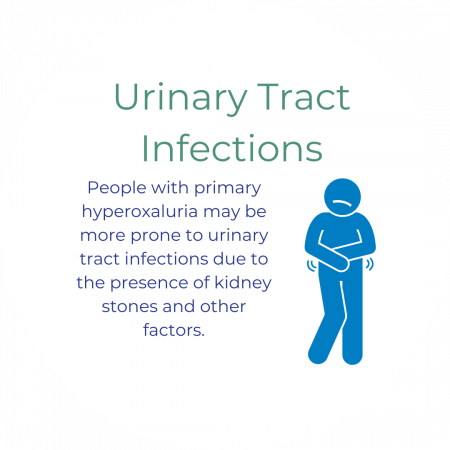
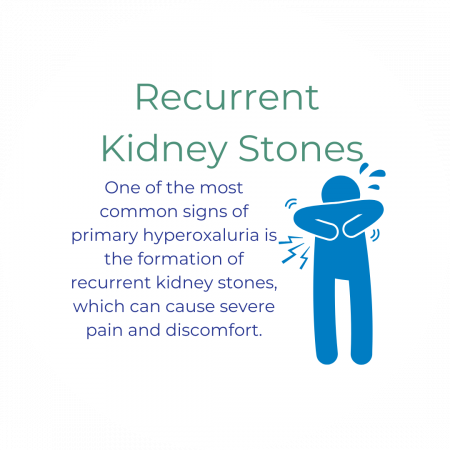
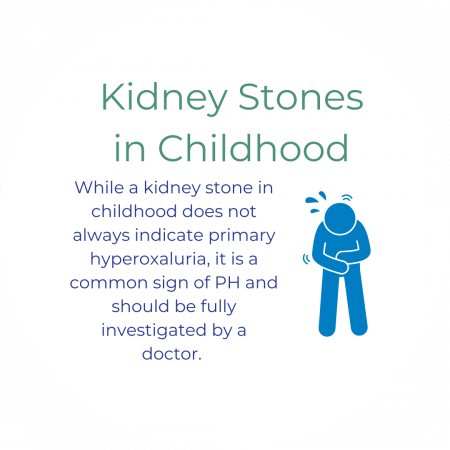
Symptoms
It is important to note that some people with primary hyperoxaluria may not show any symptoms until later in life, while others may experience severe symptoms at a young age. Renal failure can occur as early as infancy while others with PH never develop kidney failure. Although kidney stones, especially kidney stones in childhood, are the most common and often the first symptom of hyperoxaluria, not all individuals with hyperoxaluria will have kidney stones.
The signs and symptoms of primary hyperoxaluria can vary depending on the type of the disorder and the severity of the disease, but if you or a loved one experiences the below signs and symptoms you should further investigate to understand the cause, because it could be hyperoxaluria:









“We know just how important the work of the Oxalosis & Hyperoxaluria Foundation is to patients’ futures. The medication that Jack is now receiving via home injections would not have been available to him even a few years ago. The work that OHF is doing is time sensitive and life-changing!” — Courtney
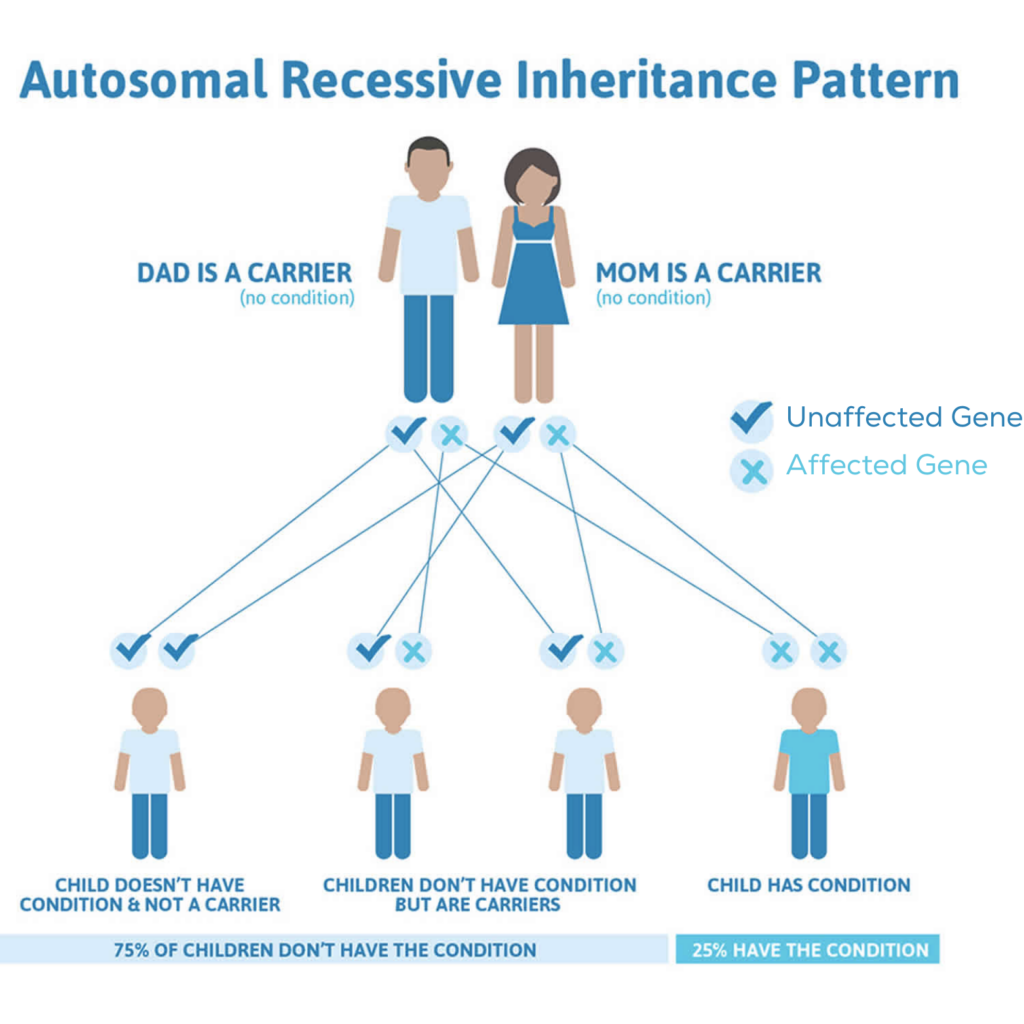
Inheritance and Genetics
A genetic disorder is the result of changes known as pathologic variants in an individual’s DNA. A pathologic variant is a change or “spelling” mistake in the letters of DNA that tell the body how to produce a protein. This section of DNA that contains the instructions for a specific protein is known as a gene.
We have two copies of each gene, one inherited from each parent. PH is inherited in an autosomal recessive pattern, meaning that an affected individual must inherit a pathologic variant or copy of the gene from each parent. The pathologic genetic variants that cause PH control the production of 3 different proteins found primarily in the liver that cause PH1, PH2 and PH3.

The exact prevalence of primary hyperoxaluria is difficult to estimate, but it is believed to be a very rare disorder. According to some estimates, the prevalence of primary hyperoxaluria is about 1 in 59,000 individuals worldwide.
However, the prevalence may be higher in certain populations, such as those with a history of consanguinity (marriage between blood relatives) or those with a family history of the disorder.
